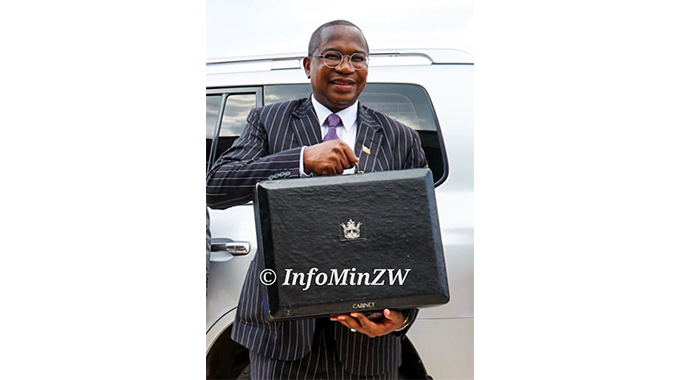
The Sunday News

Judith Phiri, Business Reporter
FINANCE and Economic Development Minister Professor Mthuli Ncube today (Thursday) presented a ZWL$4.5 trillion 2023 National Budget where he increased Intermediate Money Transfer Tax (IMTT) on domestic foreign currency transfers from 2 percent to 4 percent to improve the usage of electronic transfers.
The move comes amid observations that some entities were now preferring to settle transactions in cash, instead of electronic transfers. The budget was presented under the theme “Accelerating Economic Transformation.”
Prof Ncube says the 2023 Budget will focus on maintaining a tight monetary and fiscal policies stance as an overriding objective going forward.
He said this would be in support of macro-economic stability that promotes private sector led economic growth, as well as build capacity within the public sector to effectively implement the National Development Strategy 1 (NDS1) projects and programmes during the second half of the strategy period.
“The tax measures I am proposing will largely focus on enhancing tax collections to support the transformation agenda through reform of policy and administrative practices. Additional measures seek to support growth and competitiveness of local industry, as well as provide relief to taxpayer,” he said.
To mitigate against higher wheat prices and consequently the price of bread and other wheat products, Prof Ncube proposed to exempt from IMTT, the transfer of funds to farmers for the purchase of wheat by private off-takers approved by the Agricultural Marketing Authority (AMA), for the period 1 September 2022 to 31 March 2023.
He also proposed to reinstate the VAT rate to the previous rate of 15 percent from 14.5 percent with effect from 1 January 2023.
He said the impact on low-income households will be mitigated by existing exemptions and zero-rating on basic goods and services. To further improve tax compliance and widen use of fiscalised devices, Prof Ncube says the impact on low-income households will be mitigated by existing exemptions and zero-rating on basic goods and services.
He proposed to disqualify deductible expenditure that is not supported by a fiscal tax invoice. Among other policy measures, the Minister said: “As already enunciated by President Mnangagwa mining houses will be required to remit royalties partly in the form of a mineral and in cash.”
Prof Ncube said in order to enhance the sectors’ contribution to Government revenue, he proposed to replace the facility with suspension of duty on specified capital equipment imported by tourism industry.
He proposed to extend a Virtual Fiscal Solution, whereby clients will be linked to ZIMRA through server connectivity to accounting systems/POS solutions, while a pilot project using selected compliant clients will be implemented during the second quarter of 2023.



